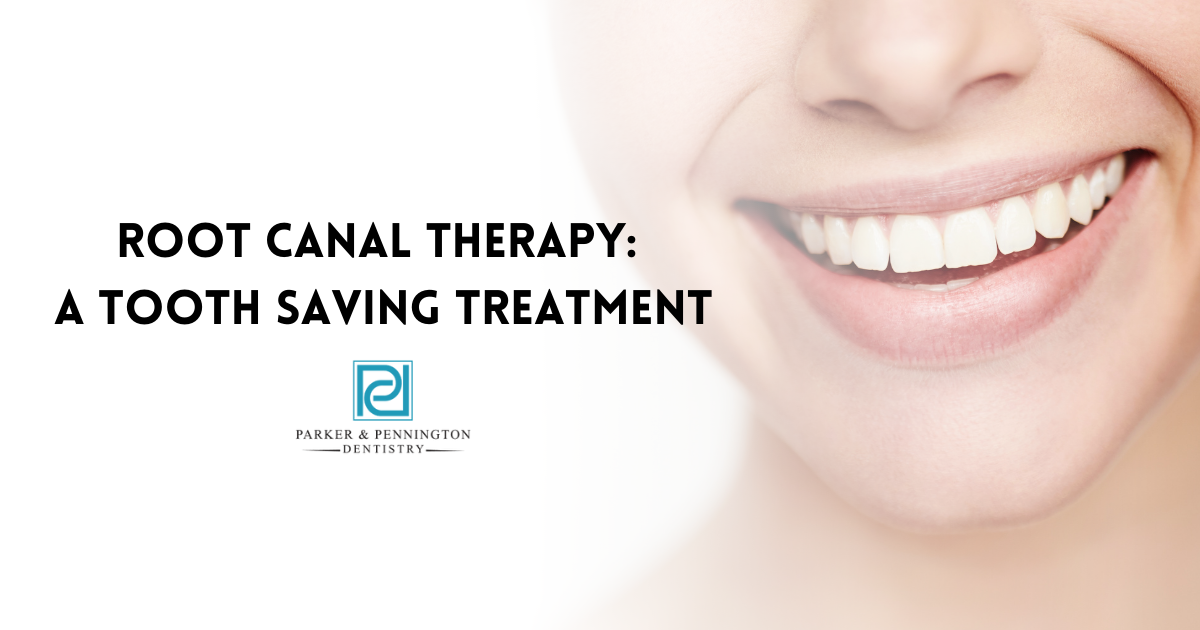Root Canal Therapy: A Tooth Saving Treatment
At Parker and Pennington Dentistry, we do everything we can to save our patients’ teeth. For teeth that have experienced severe decay or trauma, one way we save teeth is with root canal therapy. Unfortunately, over the years, thanks in part to movies and television, root canal treatment has often been portrayed as a scary or painful procedure. We greatly dislike these insinuations because root canal therapy is the complete opposite. It is a treatment that can eliminate discomfort, and it keeps patients from losing their natural teeth. We want to explain a little more about this treatment so that patients may understand what a help it can be to their oral health.
What is a Root Canal?
Each tooth has layers. The visible layer is known as the enamel and is the outer covering of the tooth. When you develop a cavity, it affects this layer. If the cavity is not treated in a timely fashion, it will continue to move through the tooth until the innermost layer of the tooth, known as the pulp, becomes infected. A root canal is the process of removing the infected pulp, cleaning and disinfecting the root, and finally sealing the tooth back up again. There are many signs that might indicate that decay is too severe and you may need a root canal:
- Severe discomfort while chewing
- Chipped or cracked tooth
- Swollen or tender gums
- Lingering sensitivity to cold and hot
- Discomfort in a tooth that already has a filling or a dental crown
Care Following a Root Canal
The aftercare treatment for a root canal is similar to a filling or dental crown. Many patients do not experience discomfort following treatment. We recommend avoiding eating and drinking until the numbing agent has worn off so as not to bite your cheek or tongue and cause more damage. We also suggest avoiding chewing on the side of treatment until the area heals, and you may prefer to switch to a soft diet.
Please don’t postpone treatment for a tooth that is causing you discomfort. If an infected tooth is left untreated, it will not heal on its own and will cause more damage to your jaw and body over time. If you have not visited our office located in St. Marys, GA recently or are feeling any tooth discomfort, please call us today to schedule your next appointment. We look forward to seeing you soon!









